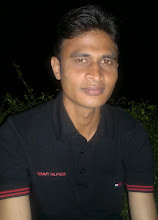Meanwhile news that the keynote address will not be given by ceo Steve Jobs has reignited speculation about his health following cancer four years ago.
Concern was raised earlier in the year when Mr Jobs appeared at the firm's developer conference looking gaunt.

Apple spokesman Steve Dowling refused to discuss the issue and said shows like Macworld were no longer relevant.
"Apple is steadily scaling back on trade shows and in recent years is reaching more people in more ways than ever before," Mr Dowling told BBC News.
"Every week 3.5 million people visit our retail stores. And like many companies, trade shows are a minor part of how Apple reaches its customers."
Mr Dowling also said that as the company had scaled back on such shows, it had ramped up "stand-alone launch events like the September iPod launch seen by millions of people on the internet".
IDG which runs the show put a brave face on things.
"We are on track for a terrific show with strong attendance numbers and nearly 500 exhibitors showcasing their products," Paul Kent, general manager of Macworld Expo told the BBC.
"The conference and expo has thrived for 25 years due to the strong support of tens of thousands of members of the Mac community worldwide. We are committed to serving their interests," he said.




